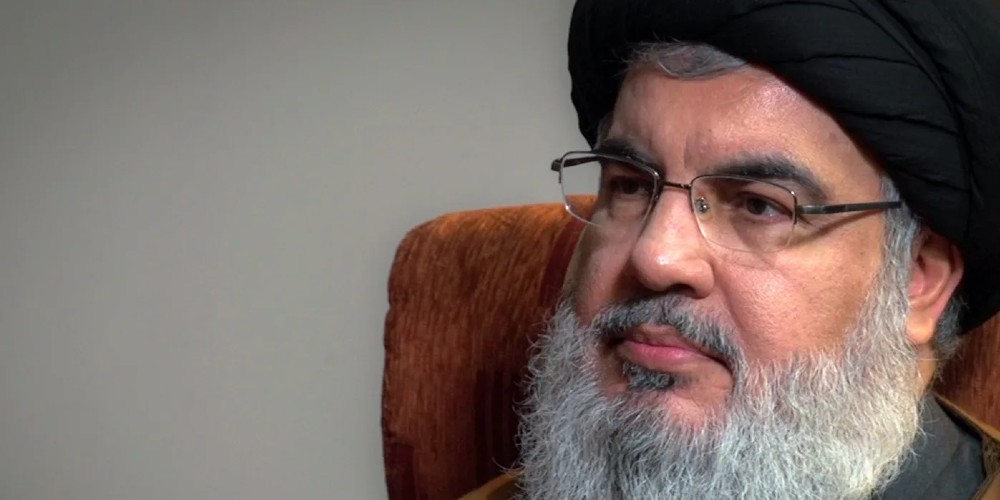(End of the American Dream)—A lot of big names have been killed in the Middle East during the past 12 months, but the death of Hassan Nasrallah is something completely different. As you will see below, he was believed to be a direct descendant of Muhammed. In Shia Islam, this is a really, really big deal. An attack on Nasrallah is literally considered to be an attack on the family of Muhammad himself, and this is why we are witnessing so much rage in Islamic nations all over the world right now. I don’t know why hardly anyone in the western world is talking about this. For Shia radicals, there must be vengeance for the death of Nasrallah. There simply is no other option.
A lot of people in the western world seem to think that Nasrallah is just another terrorist that died and that he will soon be forgotten.
That isn’t how it works in Shia Islam.
As the Jerusalem Post has accurately observed, the death of Nasrallah is “nothing short of a seismic event in the Middle East”…
The strike on the bunker of Hezbollah Secretary-General Hassan Nasrallah is nothing short of a seismic event in the Middle East. With Israel having shifted the rules of the game, what comes next? The risk of a broader conflict has risen, but there are also opportunities for a comprehensive settlement—everything now hinges on Hezbollah’s response.
The central headquarters for Hezbollah was way underground, and so the IDF had to use more than 80 one-ton bombs to destroy it…
According to Israeli media, over 80 one-ton bombs were used to “dig” deep into the ground and reached Hezbollah’s high command bunker, located under six apartment buildings that were completely flattened.
If you are convinced that Hezbollah will back down after this, you don’t understand how they think.
Nasrallah was greatly loved by his people because they believed that he was a direct descendant of Muhammad. The following comes from Wikipedia…
Nasrallah was often referred to as “al-Sayyid Hassan” (السيد حسن), the honorific “Sayyid” denoting a claim of descent from the Islamic prophet Muhammad through his grandson Husayn ibn Ali.
To those that believe in Shia Islam, Nasrallah was a living, breathing link to the founder of their faith.
Nasrallah had three sons, and he actually named two of them after his very famous ancestor…
Nasrallah is survived by his wife, Fatima Yassin. He also has three sons Jawad, Mohammed-Mahdi and Mohammed Ali, and a daughter Zeinab, as well as several grandchildren.
In Shia Islam, there is a widespread belief that an apocalyptic figure known as “the Mahdi” will appear in our day and time.
It is also believed that the name of “the Mahdi” will be “Muhammed”, and so that is why so many Islamic parents give that name to their male children.
Following the death of Nasrallah, Joe Biden used the term “justice” to describe what just happened…
The White House has finally put out a statement by early Saturday afternoon. President Biden has called Nasrallah’s death ‘justice’ for the hundreds of Americans who perished over what the US called a ‘four-decade reign of terror’.
“Hassan Nasrallah and the terrorist group he led, Hezbollah, were responsible for killing hundreds of Americans over a four-decade reign of terror. His death from an Israeli airstrike is a measure of justice for his many victims, including thousands of Americans, Israelis, and Lebanese civilians,” Biden said. The White House says the Pentagon has been ordered to enhance America’s defense posture and readiness in the Middle East.
There are thousands of Shia Muslims in the swing states of Michigan, Wisconsin and Pennsylvania that will never vote for Kamala Harris after reading that.
Joe Biden doesn’t seem to understand that this wasn’t just the death of yet another terrorist leader.
The death of Nasrallah changes everything. Hezbollah isn’t going to back down after this.
Instead, they are going to go completely nuts.
On Saturday, Hezbollah caused “the broadest rocket alerts Israel has seen during the war so far”…
Large parts of the nation were targeted by Hezbollah rocket fire on Saturday, causing the broadest rocket alerts Israel has seen during the war so far, following the Israeli strike that killed Hezbollah leader Hassan Nasrallah in Beirut, Lebanon on Friday evening.
Starting hours after the strike on Nasrallah Hezbollah began firing small rocket barrages at northern Israel. On Saturday morning, they sharply intensified their attacks by launching two ballistic missiles and multiple rocket salvos.
Of course it isn’t just Hezbollah that is steaming mad.
On Sunday, thousands of Iraqi protesters tried to storm the U.S. embassy in Baghdad…
Thousands of Iraqi protesters attempted to storm the US Embassy in Baghdad’s highly secure Green Zone on Saturday, soon after Hezbollah confirmed the death of its leader Hassan Nasrallah in Friday’s major Israeli airstrike in Beirut.
Iraq’s Prime Minister Mohammed Shia al-Sudani called strike on Nasrallah “a crime that shows the Zionist entity has crossed all the red lines.”
In Pakistan’s largest city, police were desperately trying to keep a mob of crazed rioters from overrunning the U.S. consulate located there…
Clashes took place Sunday evening in Pakistan’s largest city of Karachi as local police tried to disperse protesters who marched towards the city’s US Consulate to mourn the death of Hezbollah chief Hassan Nasrallah.
Video on social media showed police firing tear gas and warning shots, with protesters throwing stones and trying to cross barriers blocking access to the US Consulate.
The protests were led by the Majlis Wahdat-e-Muslimeen, a Pakistani Shi’a Islamic political organization which told CNN that their nationwide protests were “peaceful.”
And the Iranian government is vowing that there will be revenge…
Iran’s supreme leader has said the death of Hezbollah leader Hassan Nasrallah “will not go unavenged”, a day after he was killed in an Israeli air strike in Lebanon.
Ayatollah Ali Khamenei announced five days of mourning in Iran in response to what he called the “martyrdom of the great Nasrallah”, describing him as “a path and a school of thought” that would continue.
Iranian media reported that a Iranian Revolutionary Guards general was also killed in the Israeli strikes in Beirut on Friday.
Of course Israel is not going to back down either.
In fact, the IDF took out yet another “high-ranking Hezbollah official” on Sunday…
The Israeli military said Sunday it has killed another high-ranking Hezbollah official in an airstrike as the Lebanese militant group was reeling from a string of devastating blows and the killing of its overall leader, Hassan Nasrallah.
The military said Nabil Kaouk, the deputy head of Hezbollah’s Central Council, was killed on Saturday. Hezbollah confirmed his death, making him the seventh senior Hezbollah leader slain in Israeli strikes in a little over a week. They include founding members who had evaded death or detention for decades.
And the Israelis also just hit the Houthis really, really hard…
Israel said it bombed Houthi targets in Yemen on Sunday, expanding its confrontation with Iran’s allies in the region two days after killing the Hezbollah leader Sayyed Hassan Nasrallah in an escalating conflict in Lebanon.
The airstrikes on Yemen’s port of Hodeidah were in response to Houthi missile attacks on Israel in recent days, Israel said, amid fears that Middle East fighting could spin out of control and draw in Iran and Israel’s main ally the United States.
There is no turning back now. All-out war is on the doorstep, and the U.S. State Department has just issued a very ominous order…
The US State Department on Saturday ordered the families of embassy personnel in Beirut to leave the country and authorized the departure of some staff, as the Israel-Hezbollah conflict escalates.
The department ordered the departure “due to the increased volatility following airstrikes within Beirut and the volatile and unpredictable security situation throughout Lebanon,” it said. All US citizens were urged to leave “while commercial options still remain available.”
They know what is coming.
This is the big Middle East war that I have been warning about, and only one side will be left standing when it is all over.
When there are two opponents that are willing to do whatever it takes to win no matter the cost, that creates a situation where events can spiral out of control very, very easily.
We should all be deeply saddened by what is about to happen, because very large numbers of people are about to die.
Michael’s new book entitled “Why” is available in paperback and for the Kindle on Amazon.com, and you can subscribe to his Substack newsletter at michaeltsnyder.substack.com.
-
Learn the TRUTH about Gold IRAs and how most precious metals companies play dirty.



